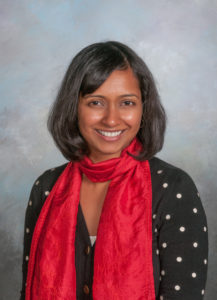
Professor of English Maya Mathur
Maya Mathur, Professor of English in the Department of English and Linguistics, published a book chapter entitled “Identities” in the volume, A Cultural History of Comedy in the Early Modern Age. The volume was published by Bloomsbury Academic. The chapter examines the literary origins of early modern comic characters and considers how their portrayal is informed by the sexual, economic, and religious mores of their time.







